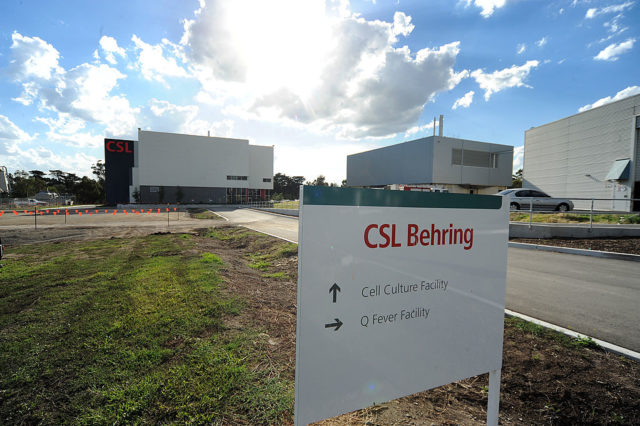
The FDA has approved the first hemophilia B gene therapy, a one-time treatment that addresses a root cause of this inherited disorder and potentially eliminates the need for regular infusions that patients currently receive to prevent bleeding episodes. Removing that economic burden from patients and the healthcare system the comes with a premium upfront price: $3.5 million for a single infusion.
The regulatory approval announced late Tuesday for the CSL Behring therapy covers adults who receive prophylactic infusions or have a history of life-threatening bleeding, as well as those who have repeated and serious spontaneous bleeding episodes. The gene therapy, known in its development as etranacogene dezaparvovec, will be marketed under the name “Hemgenix.”
Hemophilia is a bleeding disorder in which genetic mutations lead to abnormally low levels of clotting proteins. The two most common types of the disorder are hemophilia A and hemophilia B; the latter is the rarer of the two accounting for about 15% of hemophilia patients, according to the FDA. It’s caused by a mutation to the gene that codes for a clotting protein called factor IX (FIX). While many women can be carriers of the disease, they usually have no symptoms. Most of the patients who have hemophilia B and develop symptoms are men. The product’s label state that the therapy is not intended for administration in women.
Without sufficient levels of clotting proteins, hemophilia patients are susceptible to bleeding episodes. Standard hemophilia B treatment includes regular FIX infusions to replace the clotting protein that patients lack. CSL Behring, the King of Prussia, Pennsylvania-based subsidiary of CSL Limited, already markets such therapies, which are made from donated human plasma. But hemophilia B patients require these infusions for life.
Hemgenix is a one-time treatment. The therapy uses an engineered virus to deliver to patients’ liver cells a version of the FIX gene that’s intended to restore production of the deficient clotting protein. The FDA approval is based on an open-label study enrolling 57 adult males ages 18 to 75 with moderate to moderately severe hemophilia B. The main goal was to measure the change in annualized bleeding rate.
Results showed that seven to 18 months after infusion, the average adjusted annualized bleeding rate was reduced by 54% compared to baseline. Furthermore, 51 out of 54 patients, or 94%, stopped the use prophylactic FIX infusions. But the therapy does not completely restore FIX production to the levels of typical healthy human. The average FIX activity of patients in the study was 39% at six months after the infusion; at 24 months, it was 36.7%.
The most common side effects reported in the clinical trial were high levels of liver enzymes, headache, infusion-related reactions, and flu-like symptoms. The FDA said patients should be monitored for infusion reactions and elevated liver enzymes, which can be a sign of liver toxicity. During Hemgenix’s clinical development, a case of liver cancer led the FDA to place pause tests of the gene therapy. An independent inquiry concluded that this cancer was unlikely to be related to the gene therapy, leading to the removal of the clinical hold. The one patient death in the trial was attributed to cardiogenic shock and sepsis that spread from the urinary tract to the kidney—both deemed unrelated to the gene therapy.
Clinical trial data at 18 months were presented earlier this year during the annual meeting of the European Association for Haemophilia and Allied Disorders. The company plans to present updated 24-month follow-up data next month during the annual meeting of the American Society of Hematology.
Like other gene therapies, one-time treatment comes with a premium price. CSL Behring’s $3.5 million list price for Hemgenix, tops the $2.93 million to $2.96 million range in which the Institute for Clinical and Economic Review (ICER), a drug price watchdog group, calculated the therapy would be cost effective. When the report was released earlier this month, it used a $4 million placeholder price to assess Hemgenix. At that price, ICER said the CSL Behring gene therapy becomes cost effective after 8.5 years—if the durability of the treatment holds up that long.
Pricing experts and consultants note that the sky-high cost of gene therapies are pushing pharmaceutical and biotech companies to adopt value-based or outcomes-based agreements. These pacts tie the reimbursement of the therapy to defined goals or outcomes. Bluebird Bio announced such an agreement for Zynteglo, its recently approved gene therapy for the rare blood disorder beta thalassemia. If patients do not achieve and maintain transfusion independence at two years, the Bluebird Bio pledged to refund some of the therapy’s $2.8 million price.
In an emailed statement, CSL Behring said it will also offer commercial payers value-based agreements, though it did not disclose any details about those pacts. Because hemophilia B is a rare disease affecting about 6,000 patients in the U.S. and an even smaller number of those who require FIX therapy, only a small portion of people will be eligible for Hemgenix, the company said. That means Hemgenix’s impact on healthcare systems budgets will be very small. Furthermore, the company contends Hemgenix will save money by reducing the lifetime of costs associated managing the bleeding disorder.
“We are confident this price point will generate significant cost savings for the overall healthcare system and significantly lower the economic burden of hemophilia B by reducing annual bleed rates, reducing or eliminating prophylactic therapy and generating elevated FIX levels that last for years,” CSL Behring said.
In addition to being a first-in-class therapy gene therapy, Hemgenix is also the best-in-class therapy for hemophilia B, William Blair analyst Sami Corwin said in a research note sent to investors Wednesday. The firm’s survey of U.S. physicians who treat hemophilia found that a weighted average of 36% of adult hemophilia B patients would be good gene therapy candidates. That’s less than the weighted average of those classified as having severe or moderately severe disease but in line with the weighted average of patients receiving FIX infusions to prevent bleeding episodes. This latter group could be early adopters of the CSL Behring gene therapy, Corwin said.
CSL Behring acquired Hemgenix two years ago, paying uniQure, $450 million up front. The Dutch company could receive up to $1.6 billion depending on the achievement of milestones.
Photo: Carla Gottgens/Bloomberg, via Getty Images








